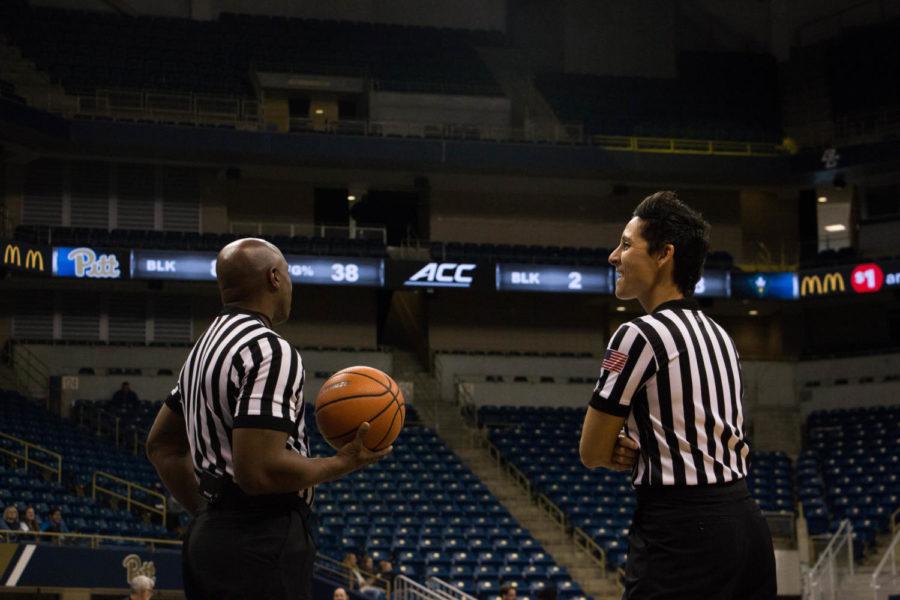While most of the attention in the college basketball offseason is given to the stars sporting the flashy uniforms, there’s some important action happening off the court.
The Mid-Eastern Athletic Conference will join the Men’s Basketball Officiating Alliance in July, expanding the coalition to ten conferences. The MEAC is the newest addition to the innovative and forward-looking organization.
“The MEAC is elated to join this alliance which adds additional levels of evaluation, education, consistency of officiating and accountability for officials,” said MEAC Commissioner Dr. Dennis E. Thomas said in an ACC release May 3. “We look forward to ameliorating the quality of our officiating with this partnership.”
The Basketball Officiating Alliance was initially formed in 2016 by the Atlantic Coast Conference, Big East Conference, Atlantic 10 Conference and Colonial Athletic Association. The Big South, Ivy League, Northeast 10 and Patriot League subsequently joined in 2017. It is primarily composed of east-coast-based conferences.
The organization hopes to change the way officiating assignments are handled geographically. It takes travel time into account when scheduling officials, with the hopes of increasing the quality of official’s performances.
“The Men’s Basketball Alliance was started a couple years ago to help create a better officiating model, where a number of leagues work together on a geographical basis to schedule officials and train, develop and retain officials with the hopes of improving the officiating process with officiating overall,” ACC Senior Associate Commissioner Paul Brazeau said.
The Alliance allows the conferences it connects to work together on officiating matters through scheduling, training, development, recruitment, retention and evaluation.
The long-term goal is to increase proficiency and consistency among veteran officials across college basketball and to facilitate the entry of younger referees into the officiating profession.
“The goal of officiating is perfection,” Brazeau said. “We all know that’s an unrealistic goal and an unattainable goal, but by helping to schedule better … we can cut down on the wear and tear that officials go through throughout the season.”
The main idea of the Alliance’s strategy is simple — in the case that an official travels to Pittsburgh to cover a Pitt game Tuesday, the Alliance would try to schedule the official a Duquesne game Wednesday, and even a Robert Morris game Thursday before they leave the Steel City.
In previous years, officials could be thrown around all over the country with each game they cover — meaning the new strategy will allow referees to travel more cheaply and perform better.
Before the Alliance existed, there was a lack of variety in officials, as the same officials would retain their same roles every year. The new system makes advancement for young referees easier by giving them more teams to cover.
Brazeau believes that the group’s strategy of assigning games is both efficient and effective. He says that the extra time given to officials due to the scheduling can be utilized for rest and development to make them better in the future.
“He’s able to fly into one place, work in three different leagues and not have to travel,” Brazeau says. “He can get better rest. He can review his games the next day on his video and learn, develop and rest at a much more rapid pace to give us some sense of consistency across all leagues.”
With the addition of the MEAC, Brazeau is pleased with how the officiating alliance has grown since its formation in 2016. However, he does not think this is the conclusion, as he believes it will continue to expand.
“It’s just a business opportunity in a sense that continues to evolve,” he said. “Just to try to improve officiating and work together to create a better environment.”


